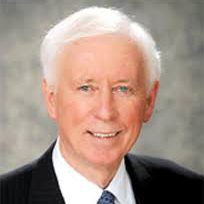Optimism About Medicine’s Future
Over the past several years I have had the opportunity to visit medical schools across the United States and speak with medical students and residents. On each of these occasions I have included in my message optimism about the future for medicine and the medical profession.
This opinion is based on my experiences in practice as a general internist and observations about continued truly astounding advances in the science of medicine that enable us to care for patients in ways previously unimaginable.
It is also based on what I hope is a clear-eyed assessment of the challenges we face in constructing a health care system that provides quality care for everyone.
Last week I visited the University of Florida College of Medicine where I presented the Alan D. Siegel, MD Humanism in Medicine Lecture at ground rounds in the Department of Medicine. As I previously reported, my remarks were about the future of medicine.
Driving back home I realized the optimism I had brought to the meeting had been as usual reinforced by my exposure to the students and residents – the future faces of medicine with whom I interacted there.
Following my presentation I had lunch with members of the house staff and heard from them about their aspirations for the future as well as concerns about what that future would be like. In addition, in the room were the department chairs and program directors.
Interestingly, of the group of ten with whom I met, nine plan to practice general internal medicine. According to the College program directors this is a change from just a few years ago when the majority of internal medicine residents planned to go into subspecialties. This trend bodes well for responding to the need to increase the number of primary care physicians in our country.
Only one of the group expressed concern about the uncertainties associated with implementation of the Affordable Care Act (the health system reform law passed in March 2010) and its effect on physicians. His concern was primarily whether ultimately everyone would be covered and therefore have access to health care.
The majority of the group expressed concern about the frequency with which medical tests and procedures are ordered that are not needed. They also talked about the lack of good information about the costs of tests and the fact that those costs vary depending on the patient’s insurance coverage and the locale or venue in which the test is being ordered.
Three of the residents were originally from countries outside the US. They emphasized the importance of everyone having coverage and hope that health system reform in the US would achieve that.
Several talked about the importance of physicians having a broad, balanced view of life and disparate life experiences, as opposed to a more narrow focus solely on the sciences.
There was some concern about the inconvenience regulatory requirements cause when prior approval is needed for certain tests and treatments.
There were also expressions of the need for more education dealing with the mechanics of practicing medicine and how to set up a practice.
What I did not hear from any in the group was the fear that the future of medicine is dire; that medicine’s best days are behind us, or that the government is going to take over medicine and ruin it.
These thoughts I unfortunately hear not uncommonly from practicing physicians who are understandably overwhelmed by the difficulties of practicing medicine in today’s regulatory environment, and are fearful of what changes the future will bring.
The reality of course is that the optimism I heard from the residents will ultimately be tempered by the challenges of practicing medicine when they complete their training.
What I hope for them however is that their optimism and enthusiasm for medicine will continue throughout their careers as it has for me.
What I told them was that the future – their future – my future – our future will in the end be what we make of it. And it will depend on our attitude.
India’s Mahatma Gandhi said it this way:
“Man often becomes what he believes himself to be.
If I keep on saying to myself that I cannot do a certain thing, it is possible that I may end by really becoming incapable of doing it.
On the contrary, if I have the belief that I can do it, I shall surely acquire the capacity to do it even if I may not have it at the beginning.”
WMA President Cecil. B. Wilson, MD travels around the world talking about the WMA’s work representing the millions of physicians worldwide. Acting on behalf of patients and physicians, the WMA endeavors to achieve the highest possible standards of medical care, ethics, education and health related human rights for all people. This blog will chronicle these travels and important issues.

